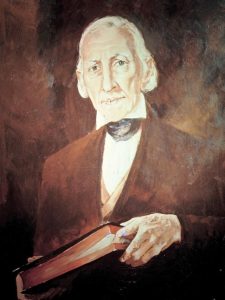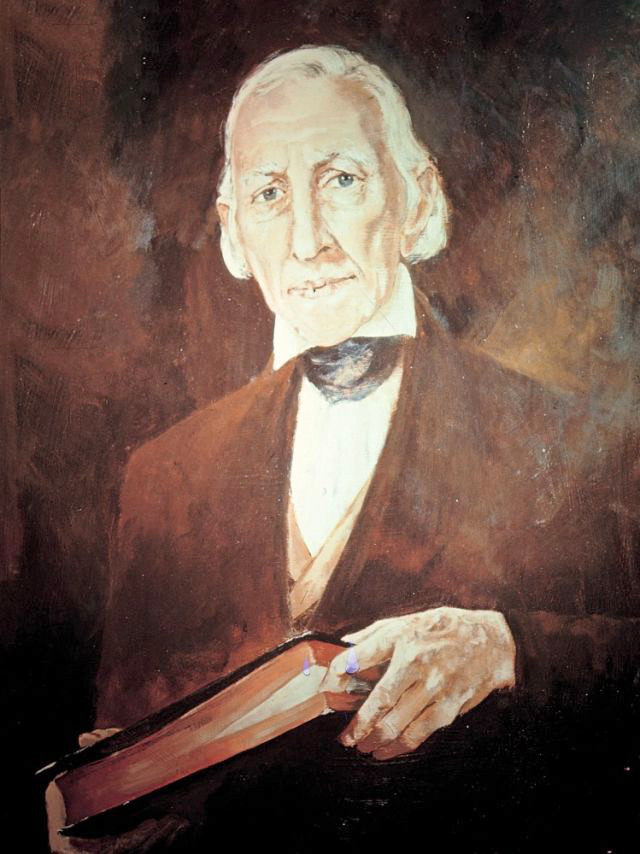Historical Context and Background of D&C 4

Video Overview
Brief Synopsis by Steven C. Harper
Joseph Smith said he was born to good parents who worked hard to instruct him in the Christian religion.1 It was general Christianity that Joseph got from his parents, not a particular version of it. They had no church—and that worried them both.
Shortly after moving his family yet again, this time to a new farm in Manchester, New York, Joseph Smith Sr. dreamed he met a peddler who promised to tell him the one thing he lacked. He jumped up to get some paper and awoke before learning the secret. Though he toiled hard and wanted badly to know God’s will, Joseph Smith’s father had a gnawing feeling that something vital was missing in his life.2
As his understanding of Joseph’s mission grew, Father Smith began to believe that God would reveal the answers through Joseph. Early in 1829, Joseph Sr. visited Joseph in Harmony, Pennsylvania, longing to know what the Lord wanted him to do.3
In the revelation, the Lord spoke the language of a God-fearing farmer who, by his own admission, sometimes drank too much and who wanted to be blameless. Section 4 sounds like it applies to everyone, but it is also perfectly adapted to Joseph’s father. For example, the command to be temperate meant that he should not drink excessively. The Lord’s metaphor of a ripe field ready for harvesting made perfect sense to Father Smith, whose life as a farmer depended on reaping successful harvests and who knew exactly what it meant to thrust in his sickle and reap all day long.
This revelation turned Father Smith into a farmer of souls. He had been tight-lipped to Oliver Cowdery, the school teacher who was boarding with his family, but when Joseph Sr. returned home to New York, he told Oliver about the marvelous work about to come forth.4 As soon as the Book of Mormon was off the press and the Church of Jesus Christ was restored, Father Smith spent the harvest season visiting his parents and siblings. He found most of them ripe, and his ministry brought salvation to their souls and his.5
1. “History, circa Summer 1832,” p. 1, The Joseph Smith Papers, accessed July 21, 2020.
2. “Lucy Mack Smith, History, 1845,” p. 72, The Joseph Smith Papers, accessed July 21, 2020.
3. “Revelation Book 1,” p. 2, The Joseph Smith Papers, accessed July 21, 2020.
4. “Revelation, February 1829 [D&C 4],” p. [1], The Joseph Smith Papers, accessed July 21, 2020.
5. On Father Smith’s mission to his family, see Richard L. Bushman, Joseph Smith: Rough Stone Rolling (New York: Knopf, 2005), 114.
Additional Context by Casey Paul Griffiths
From Doctrine and Covenants Minute
In February 1829, the winter after the challenging season when the original manuscript of the Book of Mormon was lost, Joseph and Emma were visited at their home in Harmony, Pennsylvania, by Joseph’s father, Joseph Sr., and his brother Samuel. Before arriving in Harmony, Joseph Sr. and Samuel stopped at the home of Joseph Knight Sr., a close friend and supporter of the Prophet. Joseph Knight recorded, “I told him [Joseph Smith Sr.] they had traveled far enough [and] I would go with my sleigh and taken them down [to Harmony] tomorrow” (Joseph Knight Sr., Reminiscence). The visit was cheering to Joseph and Emma, who were likely still struggling with the loss of their first child and the fallout surrounding the lost manuscript.
During the visit, Joseph Knight provided the young prophet with a little money to purchase paper. Apparently, Joseph had not translated since June 1828, and the simple gift may have allowed him to resume his work with Emma, Samuel, and Martin Harris assisting as scribes. Shortly before he resumed the work of translation, Joseph received the revelation recorded in section 4 for his father. While the revelation was given to Joseph’s father, it has become a universal statement of counsel to all who “embark in the service of God” (D&C 4:2).
While the revelation is a simple and encouraging call to Christian service, it may also have had a significant impact on the coming forth of the Book of Mormon. Beginning in the fall of 1828, a young schoolteacher named Oliver Cowdery began boarding with the Smiths in Palmyra. Oliver became curious about the rumors surrounding the plates and began to inquire of the Smiths for more information. At first Father Smith was reluctant to share, but the revelation given to him here, speaking of “he that thrusteth in his sickle with his might,” may have spurred him to tell Oliver more about the work when he returned to Palmyra. Through his conversations with Father Smith, Oliver became convinced that the Lord was prompting him to reach out to Joseph Smith Jr. to assist in the coming forth of the Book of Mormon.
Historical Context, “Revelation, February 1829 [D&C 4],” p. [1], The Joseph Smith Papers, accessed September 17, 2020, https://www.josephsmithpapers.org/paper-summary/revelation-february-1829-dc-4/1

